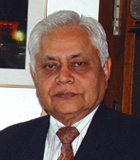INDIAN ARMED FORCES CHIEFS ON
OUR RELENTLESS AND FOCUSED PUBLISHING EFFORTS

SP Guide Publications puts forth a well compiled articulation of issues, pursuits and accomplishments of the Indian Army, over the years

I am confident that SP Guide Publications would continue to inform, inspire and influence.

My compliments to SP Guide Publications for informative and credible reportage on contemporary aerospace issues over the past six decades.
- Prime Minister witnesses 'Bharat Shakti' – a Tri-Services Firing and Manoeuvre Exercise in Pokhran, Rajasthan
- Interim Defence Budget 2024-25 — An Analysis
- Union Defence budget 2024
- Prime Minister Modi Commemorates Indian Navy Day in a Grand Ceremony
- Prime Minister Modi Flies in the LCA Tejas
- New Chapter in India-Italy Defence Ties
- Airpower beyond Boundaries
Why victimise defence only?
The forensic audit report by Deloitte on AirAsia India has revealed fraudulent transactions of Rs. 22 crore to parties in India and Singapore that do not exist

The murky controversy that has been raging in the Tata business empire in the wake of the unceremonious ouster of its Chairman Cyrus Mistry in the past few weeks has suddenly taken a turn for the worse on account of the damaging concerns raised by the outgoing Chairman pertaining to business ethics and culture of the newly established low-cost carrier AirAsia India, a venture by the Malaysia-based AirAsia Berhad, in which Tata Sons hold a 49 per cent stake. The otherwise immaculate reputation of the Tata Group has been undermined and badly tarnished by the questionable and shady financial transactions by the owners of AirAsia Berhad while establishing its joint venture airline in India. The dubious financial transactions in question are not in conformity with the culture of the House of Tatas and are not in tune with the reputation of this global business conglomerate.
It was in early 2013 that Tony Fernandes, the Chief Executive of Malaysia-based leading low-cost carrier AirAsia Berhad, made public its plans to join hands with the Indian conglomerate Tata Group along with a third investor, Arun Bhatia of Telestra Tradeplace to launch its subsidiary airline in India. Tony Fernandes revealed that his airline had applied for sanction by the Indian Foreign Investment Promotion Board for 49 per cent stake in the joint venture. Since its inception, the Indian airline industry had not been open to foreign carriers for investment. However, it was the Manmohan Singh-led government under UPA II that made the necessary changes in the existing regulations paving the way for foreign airlines to join hands with Indian carriers or with entrepreneurs to set up airlines in India in the private sector. However, investment by foreign carriers was limited to 49 per cent. The leading private carrier in India Jet Airways was the first in the race, having established a successful partnership with the Abu Dhabi-based Etihad Airways. This was followed by AirAsia Berhad and Singapore Airlines that set up Vistara once again in partnership with Tata Sons.
While the government is ruthless in dealing with even minor cases of allegations of corruption in defence procurement, surprisingly, it remains unresponsive to allegations of serious financial impropriety by AirAsia India
As per a forensic audit report by Deloitte India, the ethical concerns raised by Cyrus Mistry pertain to payments alleged to have been made to Rajendra Dubey, an aide of Mittu Chandilya, the erstwhile Chief Executive of AirAsia India, for arranging access since August 2013 to the political leadership of the country as also of the various states involved, in the process of setting up of the joint venture airline. The audit report has revealed fraudulent transactions to the tune of Rs. 22 crore to parties in India and Singapore that in fact do not exist. The report states that “Rajendra Dubey, Director in a Singapore-based firm HNR Trading, received Rs. 12.28 crore for government/regulatory framework, though there is no evidence of actual service provided”. The Deloitte audit report maintains that senior executives of the Tata Group were aware of the irregular payment to Dubey through HNR Trading. Deloitte stumbled upon another transaction in which Rs. 10.05 crore was transferred to a shell company called Link Media Immigration Services. The audit report indicated that the payment was made on Chandilya’s direction and that site visits revealed the addresses were not genuine.
Apart from the payments that did not appear to be above board, AirAsia India has been mired in other controversies. An aviation analyst, who headed operations at IndiGo and Air India, had observed that contrary to Indian foreign direct investment and aviation policies that require the control of a foreign subsidiary to be vested in an Indian entity, AirAsia Berhad continued to exercise strategic control over the operations of AirAsia India. In 2014, Subramanian Swamy, Member of the Rajya Sabha from BJP, had challenged the clearance granted to the airline AirAsia India, charging that “either the responses filed by the authorities before the court were false and misleading or the Director General of Civil Aviation had acted illegally and in utter disregard of the law”. Swamy had argued that AirAsia India’s licence be revoked since the new venture had received foreign investment approval without having established operations in the country.
In its response to the allegations of financial impropriety by the management and the promoters of AirAsia India, the Ministry of Civil Aviation (MoCA) has been somewhat subdued. A statement from the MoCA said, “We are waiting for any input from any quarter. We have not received anything so far”. If the government can be overtly proactive in dealing with a heavy hand with allegations of the smallest cases of corruption in the procurement of military hardware which is subject to an extremely stringent selection process, it is somewhat incongruous that the response by MoCA to allegations of financial impropriety by foreign airlines to attain their business goals in India, should be so passive and meek.
The views expressed herein are the personal views of the author.





